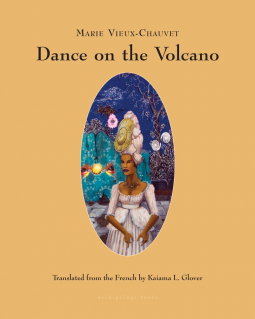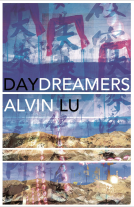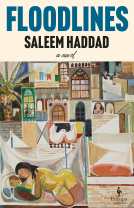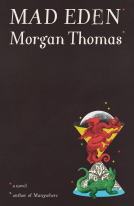Please wait... This may take a moment.
Dance on the Volcano
This title was previously available on NetGalley and is now archived.
Pub Date
Jan 10 2017
| Archive Date
Nov 01 2016
Description
Dance on the Volcano tells the story of two sisters growing up during the Haitian Revolution in a culture that swings heavily between decadence and poverty, sensuality and depravity. One sister, because of her singing ability, is able to enter into the white colonial society otherwise generally off limits to people of color. Closely examining a society sagging under the white supremacy of the French colonist rulers, Dance on the Volcano is one of only novels to closely depict the seeds and fruition of the Haitian Revolution, tracking an elaborate hierarchy of skin color and class through the experiences of two young women. It is a story about hatred and fear, love and loss, and the complex tensions between colonizer and colonized, masterfully translated by Kaiama L. Glover.
Dance on the Volcano tells the story of two sisters growing up during the Haitian Revolution in a culture that swings heavily between decadence and poverty, sensuality and depravity. One sister...
Description
Dance on the Volcano tells the story of two sisters growing up during the Haitian Revolution in a culture that swings heavily between decadence and poverty, sensuality and depravity. One sister, because of her singing ability, is able to enter into the white colonial society otherwise generally off limits to people of color. Closely examining a society sagging under the white supremacy of the French colonist rulers, Dance on the Volcano is one of only novels to closely depict the seeds and fruition of the Haitian Revolution, tracking an elaborate hierarchy of skin color and class through the experiences of two young women. It is a story about hatred and fear, love and loss, and the complex tensions between colonizer and colonized, masterfully translated by Kaiama L. Glover.
Advance Praise
"Before the twentieth century so many important women are (to borrow the idea of Rolph Trouillot) silenced out of history.... Especially women who didn't write letters or anything like that. I admire tremendously what Marie Vieux Chauvet did, in [Dance on the Volcano], to bring such women back to life." --Madison Smartt Bell
"Like a knife thrust into the sexual, social, racial, and political passions of a provincial town" --Libération
"In three movements as somber as they are striking, Marie Vieux-Chauvet explodes Hatian society in the time of dictator François Duvalier, in a classic style stripped of all exotic lyricism.... None of the dark forces that shook the country during this tragic period are forgotten in this novel-manifesto, from which no one comes out innocent." --Le Monde
"Chauvet was nitroglycerin. She set her sights on an illness ravaging Haitian society" --Dany Laferrière
"Before the twentieth century so many important women are (to borrow the idea of Rolph Trouillot) silenced out of history.... Especially women who didn't write letters or anything like that. I admire...
Advance Praise
"Before the twentieth century so many important women are (to borrow the idea of Rolph Trouillot) silenced out of history.... Especially women who didn't write letters or anything like that. I admire tremendously what Marie Vieux Chauvet did, in [Dance on the Volcano], to bring such women back to life." --Madison Smartt Bell
"Like a knife thrust into the sexual, social, racial, and political passions of a provincial town" --Libération
"In three movements as somber as they are striking, Marie Vieux-Chauvet explodes Hatian society in the time of dictator François Duvalier, in a classic style stripped of all exotic lyricism.... None of the dark forces that shook the country during this tragic period are forgotten in this novel-manifesto, from which no one comes out innocent." --Le Monde
"Chauvet was nitroglycerin. She set her sights on an illness ravaging Haitian society" --Dany Laferrière
Available Editions
| EDITION |
Other Format |
| ISBN |
9780914671572 |
| PRICE |
$18.00 (USD)
|
| PAGES |
496
|
Additional Information
Available Editions
| EDITION |
Other Format |
| ISBN |
9780914671572 |
| PRICE |
$18.00 (USD)
|
| PAGES |
496
|
Average rating from 8 members
Featured Reviews
 Reviewer 317871
Reviewer 317871
4 stars
4 stars
4 stars
4 stars
4 stars
This book quickly places the reader in the the story...you are there. I thoroughly enjoy books that fully immerses the reader. This story starts off quickly...almost as if you are time travelling and just dropped into the moment. I found it very enlightening of a period of time that is not always spoken of. We know of the revolution but there are chunks that are excluded from historical accounts. This story portrays one of those chunks. While it was not the easiest translated story to read, I am grateful to have read it. I look forward to discovering more stories from this genre.
4 stars
4 stars
4 stars
4 stars
4 stars
 Andrija F, Educator
Andrija F, Educator
4 stars
4 stars
4 stars
4 stars
4 stars
"Dance on the Volcano" by Marie Vieux-Chauvet is a novel set in Haiti during the early 20th century, just before the rise of the Duvalier regime. The story is set against the backdrop of political unrest and social change in Haiti. It follows the lives of three sisters—Nérina, a beautiful and ambitious woman; Rose, who is deeply religious; and the youngest, who is still a child.
The novel explores themes of social class, gender roles, and political corruption, offering a vivid portrayal of Haitian society. Vieux-Chauvet's writing captures the complexities of her characters' lives and the tension between personal desires and societal expectations. The novel is celebrated for its rich, evocative language and its unflinching examination of the interplay between personal and political turmoil.
4 stars
4 stars
4 stars
4 stars
4 stars
Readers who liked this book also liked:
My Lover, the Rabbi
Wayne Koestenbaum
General Fiction (Adult), LGBTQIAP+, Religion & Spirituality
As If
Isabel Waidner
General Fiction (Adult)
Daydreamers
Alvin Lu
Literary Fiction, Multicultural Interest
Diorama
Carol Bensimon
General Fiction (Adult)
All Flesh
Ananda Devi
General Fiction (Adult), Humor & Satire
John of John
Douglas Stuart
General Fiction (Adult), LGBTQIAP+, Literary Fiction
Floodlines
Saleem Haddad
General Fiction (Adult), Historical Fiction, Literary Fiction
Mad Eden
Morgan Thomas
General Fiction (Adult), LGBTQIAP+

 Reviewer 317871
Reviewer 317871
 Andrija F, Educator
Andrija F, Educator


















